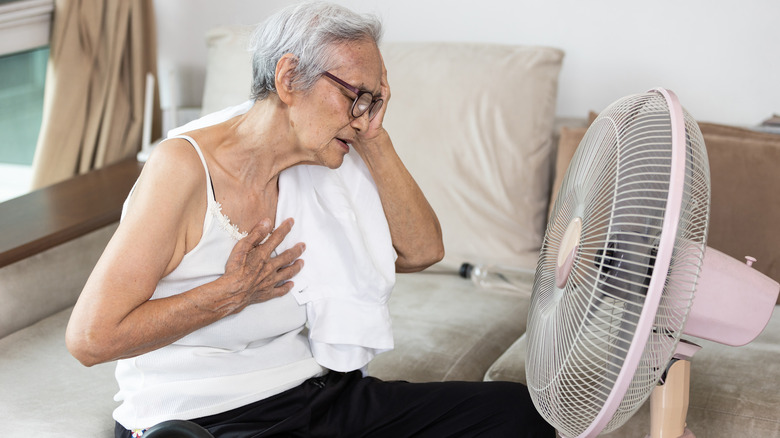Why Extreme Weather Days May Increase Heart Health Risk
Estimated to be responsible for nearly 18 million deaths annually, cardiovascular disease continues to rank as the number-one cause of death for people worldwide, according to the World Health Organization (WHO). Various factors can increase one's risk for sudden cardiac death, ranging from age, to high blood pressure, smoking, and more, as outlined in a 1998 research paper published in Circulation. Some experts state that vigorous physical activity may also prompt sudden cardiac death. Now, a new study points to extreme temperatures as another possible factor that may influence one's risk for death due to heart disease.
Researchers collected data on cases of cardiovascular cause-specific mortality from more than 500 cities across 27 countries over the course of roughly 40 years between 1979 and 2019, as per the study. Ischemic heart disease, heart failure, stroke, arrhythmia, and "any cardiovascular cause" were among the causes of death determined in their collected records. What they found was that on days with extreme temperature climbs or extreme temperature drops, the higher one's risk for cardiovascular-related death. Specifically, study findings showed that 2.2 additional deaths occurred per every 1,000 heart disease-specific deaths on days with extreme heat, reports Medical News Today. In addition, excessively cold days were linked with 9.1 additional mortalities per every 1,000 cardiovascular disease deaths. Heart failure was found to be responsible for the largest number of excess cardiovascular-specific deaths related to both exceptionally high and low temperatures.
How excessive heat and cold affects the body
Offering a plausible explanation for their findings, lead study author Dr. Barrak Alahmad of the Harvard T.H. Chan School of Public Health points to climate change. "Investigating the burden of extreme temperatures from now on will enable us to further understand what climate change might hold for cardiovascular risks," Dr. Alahmad told WebMD. He explained to Medical News Today that when faced with extreme heat, the body loses liquid through sweat and experiences an increase in core temperature. This can result in increases in heart rate, making individuals more prone to cardiovascular events. In instances of extreme cold, blood pressure rises as the body strives to conserve heat. Our blood also appears to become stickier when it's cold, some of the researchers noted, which can leave one vulnerable to heart attacks. As a result of their findings, Dr. Alahmad emphasizes the need for the medical community to develop heart health guidelines for patient treatment as it pertains to temperature extremes.
Commenting on the study, Dr. Don Pham, an interventional cardiologist at Memorial Hermann in Houston, Texas, told Medical News Today, "I think this serves as a good reminder to patients during the winter or summer months [that] when the weather has drastically [changed] in your region to pay attention to any new symptoms that occur."


